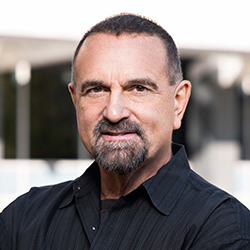The biggest drug driving Sanofi’s and Regeneron’s businesses is about to get a bit bigger.
On Friday, the FDA approved Dupixent as an add-on to typical inhaled medicines for patients with inadequately controlled COPD, or chronic obstructive pulmonary disease, and high levels of a type of white blood cell called eosinophils. China regulators also granted a similar approval in COPD on Friday.
 George Yancopoulos
George YancopoulosThe drugmakers estimate 300,000 people in the US fall under that description, representing a lucrative new market for the megablockbuster as well as a new treatment option for the hard-to-treat lung condition.
“The latest approval in COPD represents an incredible next chapter for Dupixent, giving those with COPD a novel option that has demonstrated the unprecedented ability to help patients experience fewer attacks, while also helping them breathe better and improve quality of life in Phase 3 trials,” George Yancopoulos, Regeneron’s chief scientific officer, said in a statement.
Since it was first approved in 2017, Dupixent has exploded into a business-defining drug for Regeneron and Sanofi, which co-developed the antibody that blocks IL-4 and IL-13. The drug has won approvals for a range of diseases driven by allergy or inflammation, such as eczema and asthma.
Dupixent brought in about $6.6 billion in sales for the first half of 2024. In a research note to investors in August, Evercore ISI analyst Cory Kasimov forecast that Dupixent will generate $14.5 billion in sales for the year.
The COPD market is key in continuing Dupixent’s relentless growth. In a note earlier this month, Jefferies analyst Akash Tewari said he expects $3.8 billion in peak sales of Dupixent in COPD, above a Wall Street consensus of $3.3 billion.
In a pair of Phase 3 studies, COPD patients treated with Dupixent experienced roughly one-third fewer COPD attacks than a placebo group over the course of a year. The studies only enrolled patients with blood eosinophil levels of at least 300 cells per microliter.
Dupixent is now the first biologic approved to treat COPD, but rival drugs may not be far behind. Earlier this month, GSK said its IL-5-targeting antibody Nucala succeeded in a Phase 3 COPD study. AstraZeneca and Amgen are planning a Phase 3 program for Tezspire in COPD after proof-of-concept results in a Phase 2a study were presented this May. Roche expects Phase 3 results next year for an antibody called astegolimab.
Sanofi and Regeneron are also testing a combination of Dupixent and an IL-33 antibody called itepekimab to treat a broader swath of COPD patients. They expect Phase 3 results in the second half of 2025.